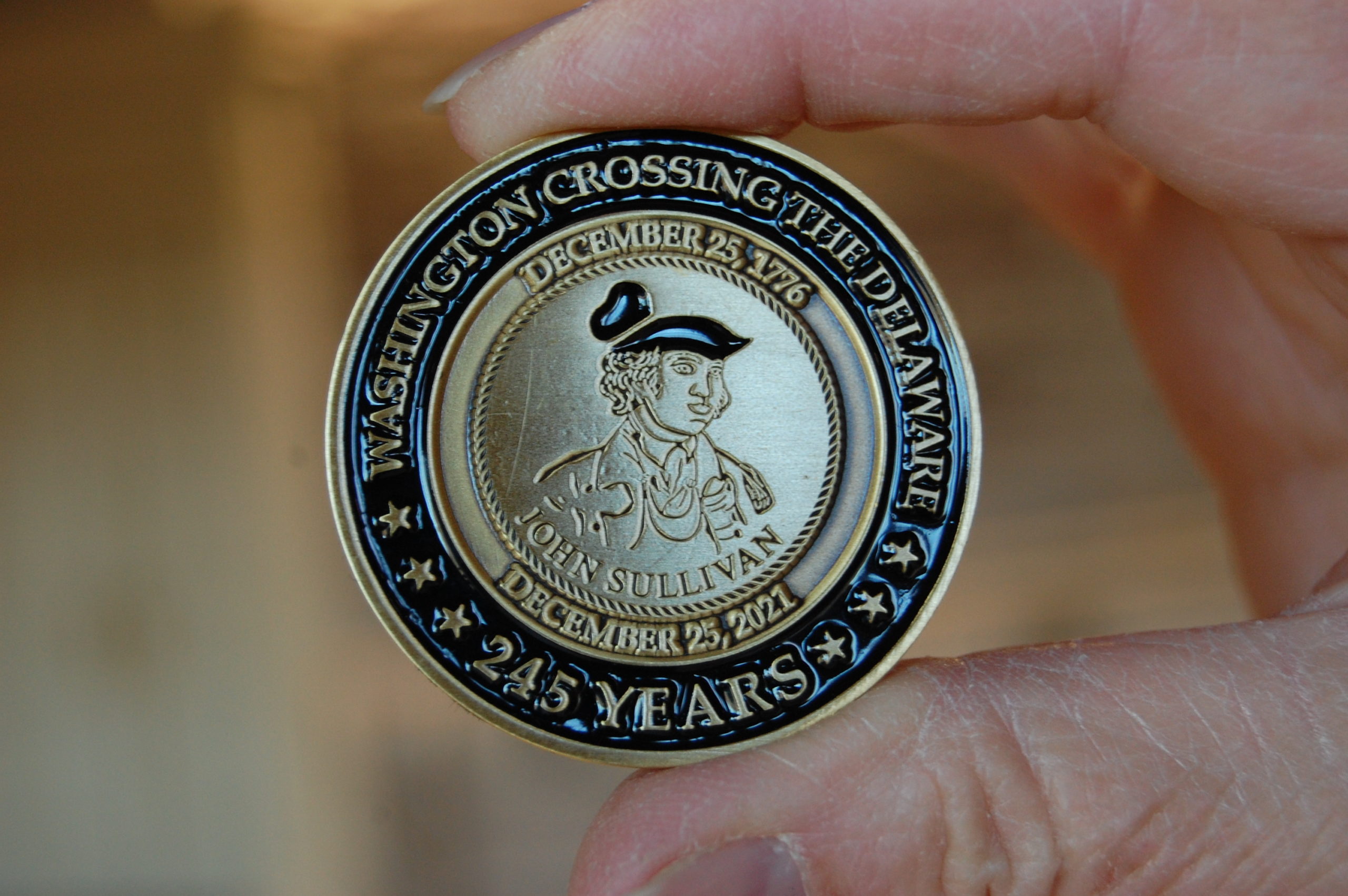
Washington Crossing Historic Park’s 2021 Challenge Coin is now available. The cost is $17.76, including tax. Shipping is an additional fee.
The Major General John Sullivan Challenge Coin can be purchased in the Visitor Center gift shop or on our website.
Every year until 2026—the 250th anniversary of the crossing of the Delaware River—Washington Crossing Historic Park will release a new challenge coin. The back of each year’s coin will feature a different officer in the Continental army, while the front features the crossing as depicted in Emanuel Leutze’s “Washington Crossing the Delaware” painting.
About Major General John Sullivan
Major General John Sullivan earned distinction in the Continental Army by defeating Loyalist forces and their Iroquois allies during the Battle of Newtown (near present-day Elmira, New York).
An attorney, Sullivan served as part of the New Hampshire delegation at the First Continental Congress in Philadelphia. He was then appointed brigadier general and aided in the Siege of Boston in 1775 before taking command of American troops in Canada after the Battle of Quebec.
Promoted to major general, Sullivan fought in the Battle of Long Island, where he was taken prisoner for three months. Upon his release, he rejoined General George Washington and his troops for the Christmas day crossing of the Delaware River in 1776.
Because he brought the troops under General Charles Lee’s command after his capture by the British, Sullivan arrived in Bucks County later than the rest of the Continental Army. On the march to Trenton, he headed a division – which included Sullivan’s Marblehead regiment – that took the lower (River Road) route while Major General Nathanael Greene’s division headed toward Scotch Road to take the Pennington Road. His attack on Trenton from the south prevented the Hessians from escaping over the Assunpink Creek bridge.
After a devastating loss at the Battle of Brandywine in 1777, Sullivan was ordered to contain the threat of Loyalist-allied Native Americans in New York. He led a scorched earth campaign that significantly weakened the Iroquois League and their ability to aid British forces. Shortly after, Sullivan retired from the military due to ill health, served in several state and federal government roles, and died in 1795.

